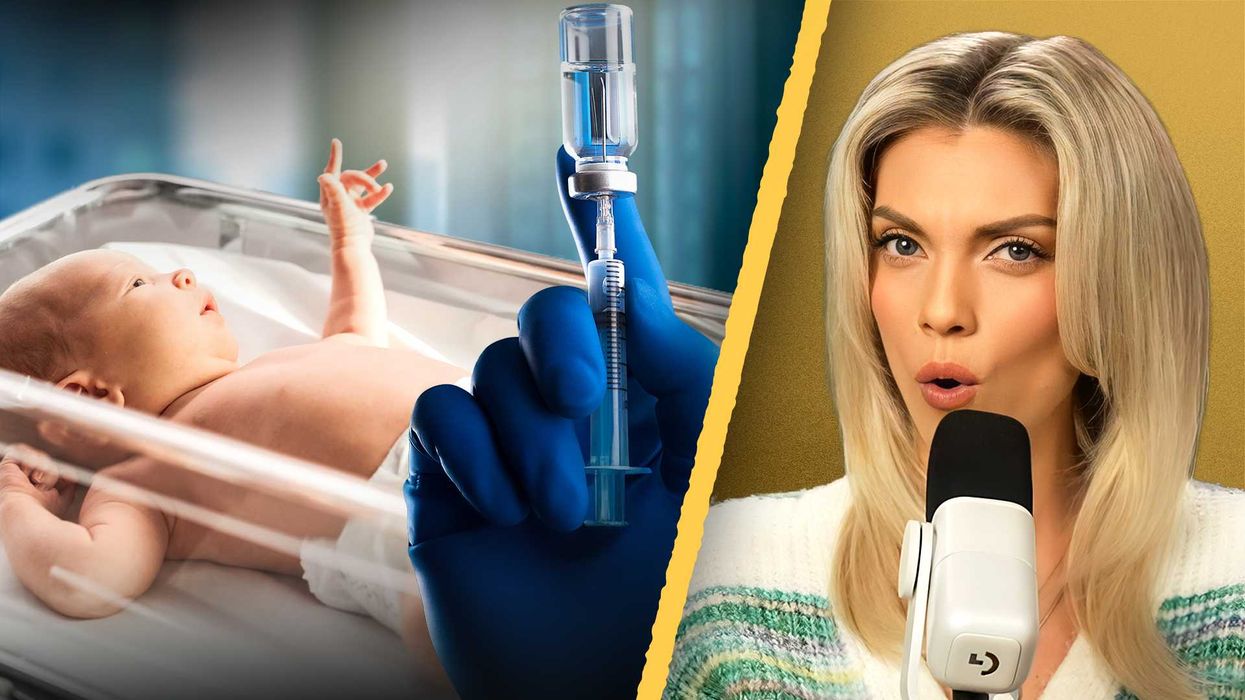
© 2025 Blaze Media LLC. All rights reserved.
"We still have much more to learn about the intricacies of HIV infection."
(TheBlaze/AP) — Scientists might have been wanting to start singing the praises of a treatment that seemed to cure a girl born with HIV, but any celebration would have come too soon.
 Doctors and officials at the National Institutes of Health said new tests last week showed that a Mississippi girl born with the AIDS virus is no longer in remission. The girl is now back on treatment and is responding well, doctors said. (AP/Johns Hopkins Medicine)
Doctors and officials at the National Institutes of Health said new tests last week showed that a Mississippi girl born with the AIDS virus is no longer in remission. The girl is now back on treatment and is responding well, doctors said. (AP/Johns Hopkins Medicine)
The Mississippi girl born with the AIDS virus, who is now nearly 4 years old, was in remission for years despite stopping treatment is now showing signs that she still harbors HIV — and therefore is not cured. The news is a setback to hopes that very early treatment with powerful HIV drugs might reverse an infection that has seemed permanent once it takes hold.
As recently as March, doctors had said that she seemed free of HIV despite not having been on AIDS drugs for about two years. It was a medical first.
But on Thursday, doctors said tests last week showed that she is no longer in remission. She is now back on treatment and is responding well, doctors said.
“Certainly, this is a disappointing turn of events for this young child, the medical staff involved in the child’s care, and the HIV/AIDS research community,” said Dr. Anthony Fauci, director of the National Institutes of Health's Institute of Allergy and Infectious Diseases. “Scientifically, this development reminds us that we still have much more to learn about the intricacies of HIV infection and where the virus hides in the body. The NIH remains committed to moving forward with research on a cure for HIV infection.”
"We're going to take a good hard look at the study and see if it needs any modifications," either in terms of length and type of treatment or because of ethical concerns over raising false hopes about an approach that now has suffered a setback, Fauci added.
Most HIV-infected moms in the U.S. get AIDS medicines during pregnancy, which greatly cuts the chances they will pass the virus to their babies. The Mississippi baby's mom received no prenatal care and her HIV was discovered during labor. Because of the baby's great risk of infection, doctors started her on unusually powerful treatment 30 hours after birth, even before tests could determine whether she was indeed infected.
The girl was treated until she was 18 months old, when doctors lost contact with her. Ten months later when she returned, they could find no sign of infection even though the mom had stopped giving her AIDS medicines.
Tests repeatedly showed no detectable HIV until last week, when copies of the virus were measured in her blood. Doctors say they don't know why the virus rebounded when it did, and said it raises profound questions about what they know about HIV's hideouts in the body.
In March, doctors revealed that a second baby born with HIV may have had her infection put into remission by very early treatment — in this case, four hours after her birth in suburban Los Angeles in April 2013. Nearly a year later, very sophisticated tests at multiple times suggested she had completely cleared the virus, but she remains on treatment so there is no way to know for sure.
Only one other person is thought to have been cured of HIV infection — a San Francisco man who had a bone marrow transplant in 2007 from a donor with natural resistance to HIV. He showed no sign of infection more than five years later.
—
Front page image via Shutterstock.
Want to leave a tip?
We answer to you. Help keep our content free of advertisers and big tech censorship by leaving a tip today.
Want to join the conversation?
Already a subscriber?
more stories
Sign up for the Blaze newsletter
By signing up, you agree to our Privacy Policy and Terms of Use, and agree to receive content that may sometimes include advertisements. You may opt out at any time.
Related Content
© 2025 Blaze Media LLC. All rights reserved.
Get the stories that matter most delivered directly to your inbox.
By signing up, you agree to our Privacy Policy and Terms of Use, and agree to receive content that may sometimes include advertisements. You may opt out at any time.






